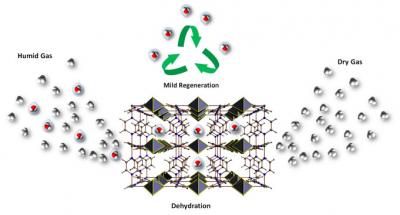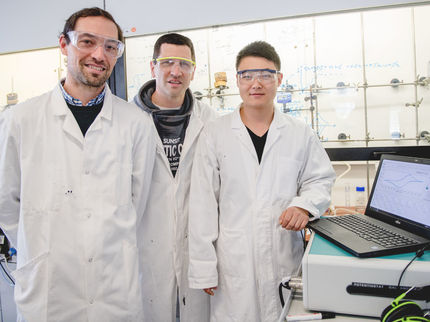'Nanosprings' offer improved performance in biomedicine, electronics
Researchers at Oregon State University have reported the successful loading of biological molecules onto "nanosprings" – a type of nanostructure that has gained significant interest in recent years for its ability to maximize surface area in microreactors. The findings, announced in the journal biotechnology Progress , may open the door to important new nanotech applications in production of pharmaceuticals, biological sensors, biomedicine or other areas.
"Nanosprings are a fairly new concept in nanotechnology because they create a lot of surface area at the same time they allow easy movement of fluids," said Christine Kelly, an associate professor in the School of Chemical, Biological and Environmental Engineering at OSU.
"They're a little like a miniature version of an old-fashioned, curled-up phone cord," Kelly said. "They make a great support on which to place reactive catalysts, and there are a variety of potential applications."
The OSU researchers found a way to attach enzymes to silicon dioxide nanosprings in a way that they will function as a biological catalyst to facilitate other chemical reactions. They might be used, for instance, to create a biochemical sensor that can react to a toxin far more quickly than other approaches.
"The ability to attach biomolecules on these nanosprings, in an efficient and environmentally friendly way, could be important for a variety of sensors, microreactors and other manufacturing applications," said Karl Schilke, an OSU graduate student in chemical engineering and principal investigator on the study.
The work was done in collaboration with the University of Idaho Department of Physics and GoNano Technologies of Moscow, Idaho, a commercial producer of nanosprings. Nanosprings are being explored for such uses as hydrogen storage, carbon cycling and lab-on-chip electronic devices. The research was also facilitated by the Microproducts Breakthrough Institute, a collaboration of OSU and the Pacific Northwest National Laboratory.
Most read news
Topics
Organizations
Other news from the department science
These products might interest you
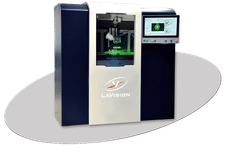
SprayMaster inspex by LaVision
Quality Control for Your Spraying Process Through Digital Spray and Particle Analysis
Reliable, Automated, Digital - The Geometry Measurement of Your Spraying Process in Real Time

FireSting-PRO by PyroScience
New fiber optic measuring device: Precise measurements even in the smallest volumes
Measure pH, oxygen and temperature even under sterile conditions

VEGAPULS | VEGABAR | VEGASWING by VEGA Grieshaber
Cyber-safe level measurement - here's how it works
Find out more about the unique sensor for liquid and solid media

Get the chemical industry in your inbox
By submitting this form you agree that LUMITOS AG will send you the newsletter(s) selected above by email. Your data will not be passed on to third parties. Your data will be stored and processed in accordance with our data protection regulations. LUMITOS may contact you by email for the purpose of advertising or market and opinion surveys. You can revoke your consent at any time without giving reasons to LUMITOS AG, Ernst-Augustin-Str. 2, 12489 Berlin, Germany or by e-mail at revoke@lumitos.com with effect for the future. In addition, each email contains a link to unsubscribe from the corresponding newsletter.
Most read news
More news from our other portals
See the theme worlds for related content
Topic world Sensor technology
Sensor technology has revolutionized the chemical industry by providing accurate, timely and reliable data across a wide range of processes. From monitoring critical parameters in production lines to early detection of potential malfunctions or hazards, sensors are the silent sentinels that ensure quality, efficiency and safety.

Topic world Sensor technology
Sensor technology has revolutionized the chemical industry by providing accurate, timely and reliable data across a wide range of processes. From monitoring critical parameters in production lines to early detection of potential malfunctions or hazards, sensors are the silent sentinels that ensure quality, efficiency and safety.
Last viewed contents
Category:Indole_forming_reactions
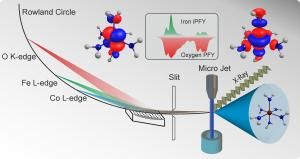
Better insight into molecular interactions
BASF opens a second polyurethane systems site in Russia
Agilent Technologies introduces method for chemical fingerprinting of microscopic materials from crime scenes
ITT agrees to purchase Nova Analytics
New information from REACH registrations extends the SIN List
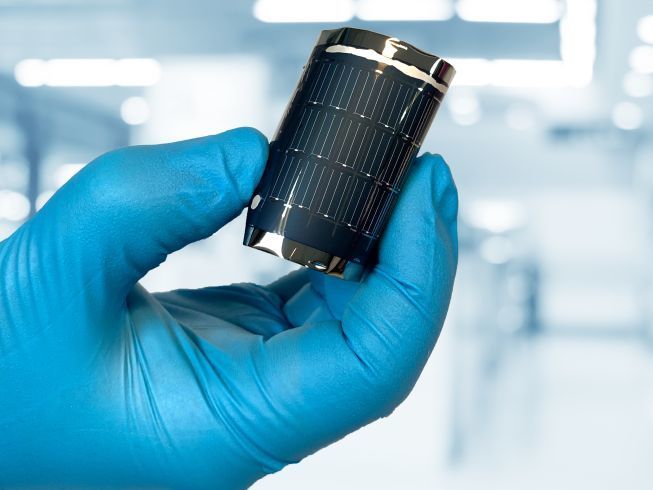
21.4% record efficiency for flexible solar cells - Flexible solar cells gain power

Ionic liquids make a splash in next-gen solid-state lithium metal batteries - Quasi-solid-state-electrodes realize a significant reduction in interfacial resistance
